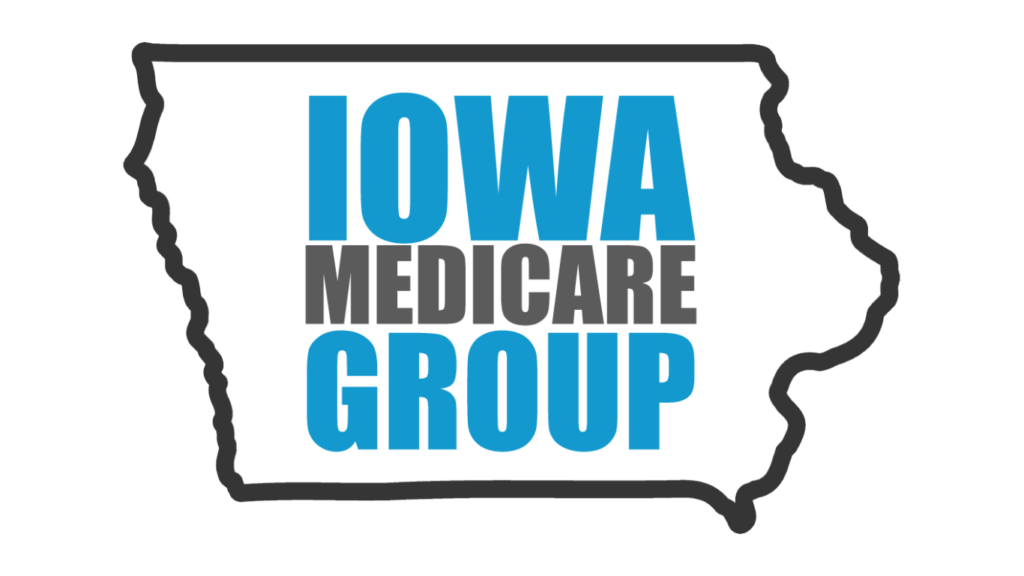Medicaid Assistance
Medicaid is a federal and state program which assists the financially and medically needy with their health care premiums, deductibles, copays, coinsurance, and health related services. Each state has its own eligibility requirements based on Modified Adjusted Gross Income (MAGI) and available individual and household resources. Medicaid’s benefits allow those less fortunate to afford basic as well as more complex health care needs. There are several different Medicaid levels, waivers, and medically needy programs for each state. Each state designs their benefit structure and gives different names to the programs offered.
In Iowa, Medicaid has been privatized and most Medicaid members use a provider network managed by one of two Managed Care Organizations. When qualifying for Medicaid through an MCO you are considered full Medicaid with zero copays on Hospital and Medical. Medication’s copays are usually zero or minimal costs. Limited Medicaid falls under Qualified Medicare Beneficiaries where deductibles and coinsurances are paid, however, usually no dental, eye wear or hearing aids are offered. There are also Medical Spend Down programs that act like a deductible for that month and after meeting that obligation all your medical and hospital bills would be covered at 100%.
Who Qualifies?
In Iowa, Medicaid eligibility hinges on a few factors:
- US citizenship
- Permanent Resident immigrants (5 years of residing in the US)
- Being a resident of the state
- Having low income and minimum liquid assets or resources
- When applicant cannot perform 2 out of the 6 activities of daily living
- Physically or mentally disabled.
As a resident of Iowa in 2021, to receive a QMB – Qualified Medicare Beneficiary level of Medicaid a single person must earn under $1094 gross income per month. As a couple, gross household income must not exceed $1472 per month. Liquid Resources cannot exceed $7,970 for a single individual and $11,960 for a married couple.
There are many different Medicaid waiver programs offered and benefits for each waiver will be determined by the state and the specific waiver you are applying for. The Elderly Waiver or Managed Care Waivers helps a Medicare beneficiary’s function and stay in their home when they cannot perform 2 or more of the 6 activities of daily living. These activities include bathing, dressing, walking, eating, transporting, toileting, and other considerations like cleaning. Most people have a better quality of life when living in their own home. Receiving extra in-home care services and/or personal assistance will hopefully delay or eliminate an immediate need to go into a nursing home.
The income limits are expanded for waivers with the majority of states allowing up to 300% of the Federal poverty level. This expands income up to $2382 per month for a single individual and $4355 per month for a couple. Resources (liquid assets) for waivers are much lower than single person $2,000. Married with both individuals applying $3,000 maximum. Married Couples with only one individual applying $2,000 asset limit on Beneficiary receiving waiver and non-waivered spouse may keep up to $130,380 in liquid assets.
Income
Anything that can be taxed would be considered income for calculations of state Medicaid assistance. Wages from Social Security are not the only factor – alimony, pensions, veteran’s benefits, withdrawals from IRA accounts, annuity income and rental income etc. Therefore, it is important to evaluate all your sources.
Assets
Assets (Resources Liquid) do not include personal residence, automobiles, $1500 prepaid life insurance, and personal items. All other resources such as checking, savings, stocks, bonds, CDs, IRAs/401ks and alike would be countable assets.
What Are the Benefits?
There are federal guidelines for what a Medicaid program has to offer. However, great amount of flexibility is given to the individual state and how they structure their benefits, services and designs, Medicaid must offer coverage for these services:
- Inpatient and outpatient care
- Laboratory and X-ray
- Physician and home health care
- Skilled nursing facility care
- Transportation to medical treatment
- Early and Periodic Screening, Diagnostic, and Treatment Services
Other Possible Medicaid Benefits (depending on the Level of Medicaid and state you reside in)
- Dental
- Vison
- Hearing
- Medical Alert Devices
- Over-the Counter Items
Enrolling in state Medicaid is easy. Call now and we will do our best to guide you in the right direction.
There are also Medicaid Elderly Waiver Programs, which allow for Iowan citizens to have affordable access to long term care in their own homes.
Elderly Waiver Programs cover services that would typically be provided in a nursing home. For this, an individual has to be 65 or older, who has been determined by a medical professional to need some form of institutionalized care. This care includes assistance with daily activities, as well as reminders for taking medications and having meals prepared.
How Do I Get It?
Applying for Medicaid in Iowa is simple and easy, as you can complete the application online. Visit dhs.iowa.gov/how-to-apply and follow the links. You’ll be guided through the process. And within minutes, your Medicaid application will be complete.
We Help You Save!
At Iowa Medicare Group, we find every way to make your healthcare more affordable for you. You do not need to worry about medical costs – your priority should be on improving your health and getting proper treatment. When you contact us, you’ll get all the information you need about Medicaid assistance.
